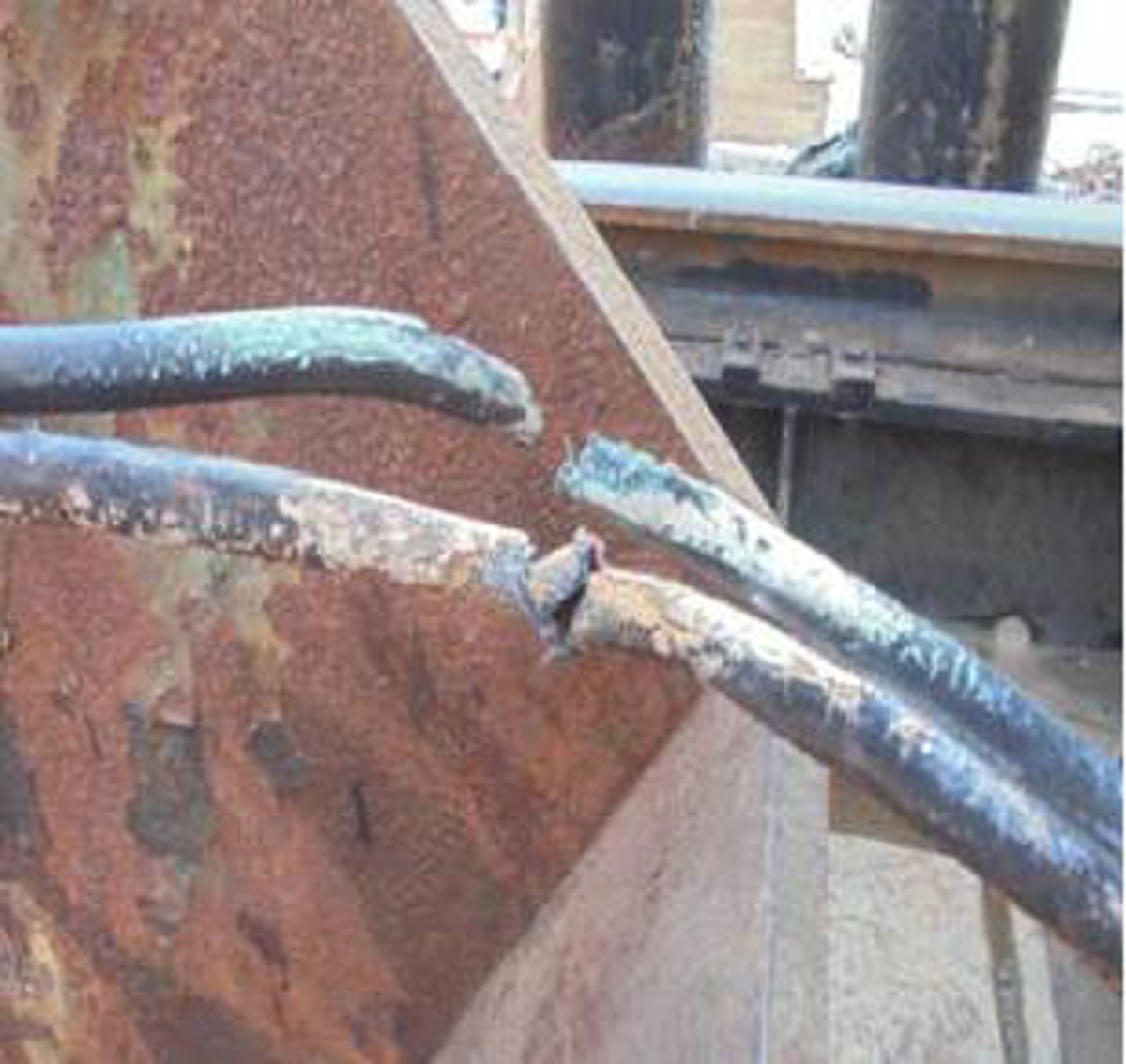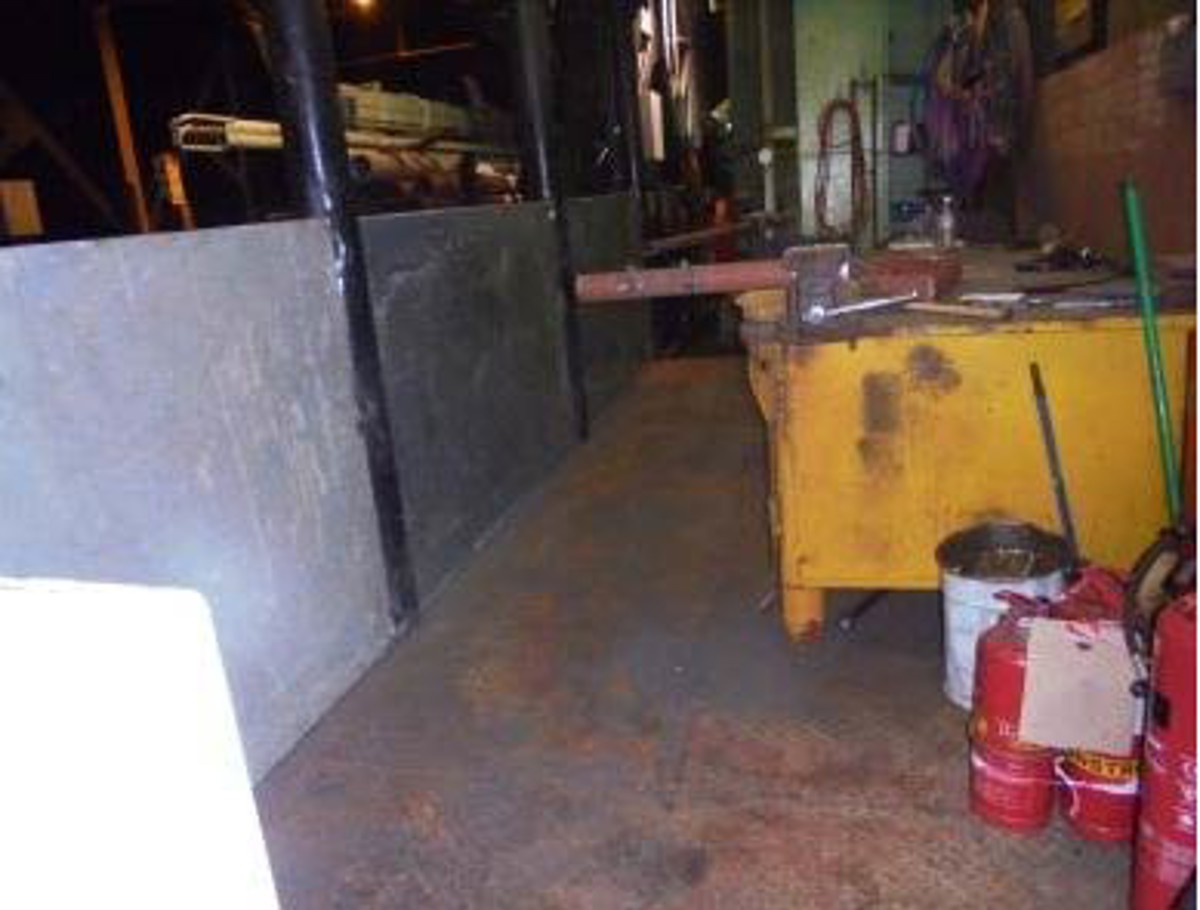Punctured welding hose flash fire
- Safety Flash
- Published on 14 July 2014
- Generated on 21 February 2026
- IMCA SF 12/14
- 2 minute read
Jump to:
An incident has come to IMCA’s attention in which a punctured welding hose caught fire.
What happened?
The incident occurred during ‘routine’ use of an air operated grinder on an offshore vessel. The pipefitter/fire watch saw flames coming from the acetylene hose, told his colleague to stop grinding, isolated the gas supply and used a fire extinguisher to put out the flame.
No-one was harmed, the worksite was secured, and the incident was reported to the supervisor who stopped the work. A safety stand down was immediately held. There was no injury and no property damage other than to the hose.
The investigation revealed the following immediate causes of the incident:
- Poor practices of routing and protecting hoses had subjected them to damage.
- The acetylene hose was connected and run out in the vicinity of a workshop and subjected to uncontrolled sparks.
- Escaping gas was ignited resulting in a flash fire.
The root causes identified were:
- The nearby workshop was not designed to prevent or control heat and spark release.
- The hose was of inferior quality and had been poorly treated.
- The hose was recently brought into service and already sustained damage resulting in the escape of acetylene gas.
- Pre and post inspections had not been adequately carried out. Had they been completed, this would have raised concerns about the structural integrity of the hose.
The following corrective actions were suggested:
- Provide adequate blinding/coverings in the nearby carpentry workshop to prevent sparks and heat from going outside of the contained area.
- Training and toolbox talk reviewing the incident and stressing cable and hose management, pre and post task inspection and removing damaged equipment from service.
- All hoses and equipment to undergo ‘routine’ maintenance inspections and be colour coded to enable personnel see the equipment is valid to use.
- Several other damaged hoses were removed and replaced.
- A pre-and post-task welding hose checklist was created and made part of the permit to work process.
Related safety flashes
-
IMCA SF 08/14
4 June 2014
-
IMCA SF 02/14
20 February 2014
-
IMCA SF 08/09
19 June 2009
IMCA Safety Flashes summarise key safety matters and incidents, allowing lessons to be more easily learnt for the benefit of the entire offshore industry.
The effectiveness of the IMCA Safety Flash system depends on the industry sharing information and so avoiding repeat incidents. Incidents are classified according to IOGP's Life Saving Rules.
All information is anonymised or sanitised, as appropriate, and warnings for graphic content included where possible.
IMCA makes every effort to ensure both the accuracy and reliability of the information shared, but is not be liable for any guidance and/or recommendation and/or statement herein contained.
The information contained in this document does not fulfil or replace any individual's or Member's legal, regulatory or other duties or obligations in respect of their operations. Individuals and Members remain solely responsible for the safe, lawful and proper conduct of their operations.
Share your safety incidents with IMCA online. Sign-up to receive Safety Flashes straight to your email.

